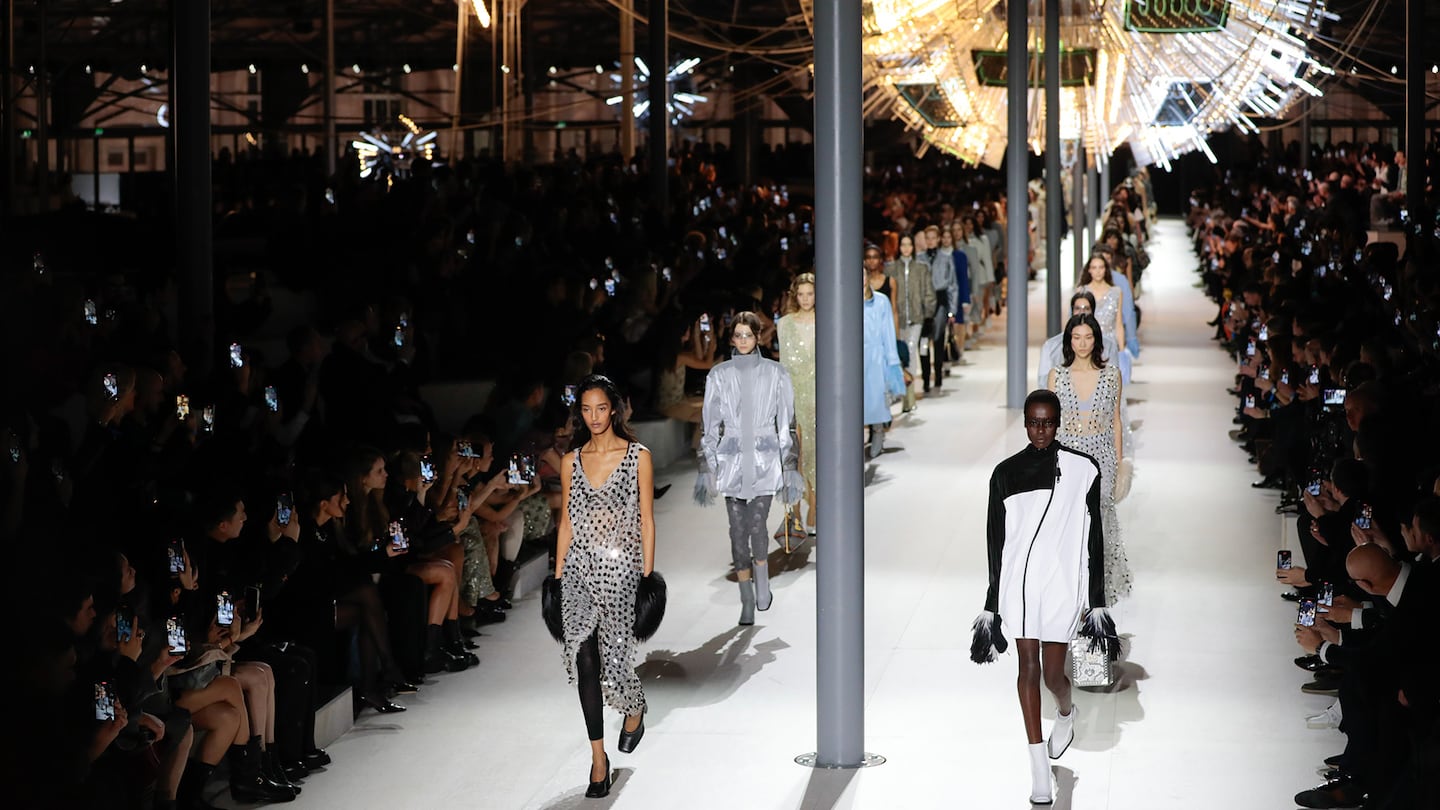
The Business of Fashion
Agenda-setting intelligence, analysis and advice for the global fashion community.

Agenda-setting intelligence, analysis and advice for the global fashion community.

Luxury conglomerate LVMH reported first-quarter sales up 3 percent on an organic basis, confirming fears that luxury demand would continue to sputter as slowing economic growth, high inflation, renewed demand for travel and experiences and customer fatigue with logo-heavy merchandise all take a toll on the sector.
Sales fell 2 percent on a reported basis, dragged down by unfavorable currency shifts.
The result was in line with analyst estimates but lower than projections for global inflation (expected to be 5-6 percent this year) and made the first quarter LVMH’s slowest quarter since 2020.
The group’s key fashion and leather goods division grew 2 percent on an organic basis.
ADVERTISEMENT
LVMH does not break out sales for individual brands, but gave a few hints on how specific units are doing. While Louis Vuitton and Loro Piana both had an “excellent” start to the year, the group emphasised “creative momentum” at its other houses (implying less-than-stellar financial outcomes). Louis Vuitton’s sales growth was “slightly above” the division’s average, while Christian Dior’s was “slightly below,” chief financial officer Jean-Jacques Guiony said.
Watches and jewellery sales fell 2 percent, less than one year after the reopening of Tiffany & Co’s “Landmark” flagship in New York. Later this year, the American jewellery giant will face tougher comparisons as it annualises the reopening of its historic mega-store. The outlook for LVMH’s watch brands isn’t particularly sunny either. “As far as watches are concerned, I confirm that we are not particularly optimistic, but we don’t expect catastrophe,” Guiony said.
Wine and spirits was the worst-performing division, with sales falling 12 percent, while the group’s Selective Retailing unit offered the brightest spot: “Remarkable growth” at cosmetics chain Sephora drove the division up 11 percent even as duty-free retailer DFS continued to struggle, LVMH said. Perfume and cosmetics sales grew 7 percent.
Sales rose 2 percent in the key US market, as well as in Europe.
Sales in Asia (excluding Japan) sank 6 percent, reflecting difficult comparisons to surging spend last year, when Chinese authorities relaxed most coronavirus restrictions, and the rebound of long-haul tourism, which prompted many shoppers to make purchases outside Asia.
In the US and Europe, the market remains polarised as top-spending clients continue to shell out for luxury goods, and aspirational luxury shoppers who have been harder hit by rapid inflation remain less acquisitive. “As long as inflation will be a factor we don’t expect to do miracles with this group of customers and we expect only a gradual improvement,” Guiony said. Among Chinese clients, demand was less polarised, he added.
LVMH’s slowdown may already be priced in by markets, as rival Kering’s warning last month that first-quarter revenues would likely decline by 10 percent (including a 20 percent drop at Gucci) had already provoked a sector-wide sell-off. And the performance among Chinese customers is better than it looks: worldwide, sales grew by close to 10 percent, Guiony said.
Still, a sluggish performance in fashion and leather goods — the group’s most profitable division — won’t be taken as a positive sign. And slower growth could lead LVMH to tighten its belt, which could impact other companies serving the fashion sector: “I’d rather not start to answer about cost savings or else we’ll be there for the rest of the evening,” Guiony said.
Disclosure: LVMH is part of a group of investors who, together, hold a minority interest in The Business of Fashion. All investors have signed shareholders' documentation guaranteeing BoF's complete editorial independence.
Investors dived back into top luxury shares on Friday, adding some $70 billion to their market value as LVMH’s latest sales figures reassured investors about the sector’s resilience to economic headwinds, particularly in China.
Above all, the French conglomerate benefits from the sheer scale of its core megabrand Louis Vuitton, setting in motion a virtuous cycle that powers profit generation, writes Luca Solca.

Robert Williams is Luxury Editor at the Business of Fashion. He is based in Paris and drives BoF’s coverage of the dynamic luxury fashion sector.
Mining company Anglo American is considering offloading its storied diamond unit. It won’t be an easy sell.
The deal is expected to help tip the company into profit for the first time and has got some speculating whether Beckham may one day eclipse her husband in money-making potential.
The designer has always been an arch perfectionist, a quality that has been central to his success but which clashes with the demands on creative directors today, writes Imran Amed.
This week, Prada and Miu Miu reported strong sales as LVMH slowed and Kering retreated sharply. In fashion’s so-called “quiet luxury” moment, consumers may care less about whether products have logos and more about what those logos stand for.